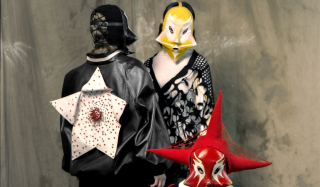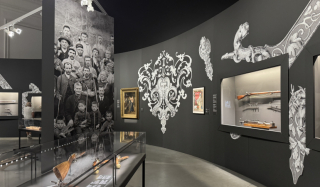By Saffina Rana
From a modest producer of herbal teas, Tilman has grown into a medicinal success story with a multi-million-euro turnover and a 42% growth in exports last year.
Its Thé du Vieil Ardennais has been a household name in Belgium since the 1940s. Derived from mistletoe, quackgrass, liquorice and olive leaf and designed to reduce hypertension and water retention, it was developed in 1947 by pharmacist Lucien Tilman at his pharmacy in the village of Bomal-sur-Ourthe, in the picturesque Ardennes countryside.
By the late 1950s, its popularity had led to the development of several tisanes to ease the likes of cold symptoms and joint pain. Tilman transferred his passion for plant-based cures to his son and grandsons, and today Tilman produces a range of herbal medicines with a multi-million-euro export business.
Ten Tilman products have marketing authorisations as herbal medicinal products and are sold at pharmacies in more than 40 countries. Last year, they generated around 50% of the company’s €30.6 million turnover. The best-sellers include a passionflower preparation to reduce anxiety (Sedistress), a thyme-based expectorant cough syrup (Thymoseptine), and food supplements to regulate cholesterol levels (Cholesfytol),treat joints (Flexofytol) and aid digestion (Antimetil).
“The cholesterol, anxiolytic and articular markets are among the most important in every country,” explains Manoël Tilman, one of Lucien’s grandsons who is in charge of exports. “Patients are looking for alternatives to the traditional synthetic medicines that may induce side effects in certain cases. Wewant to offer these patients a safe and effective option with our products.”
The innovation from herbal teas to highgrade medicinal products happened organically. According to Tilman, the popularity of the tisanes grew in the 1970s, with the boom in the Belgium phytotherapy market, which consisted exclusively of herbal teas. The end of the 1970s was also when his father, Lucien’s son Jean-Noël, decided to study pharmacy. “He also read a lot of literature on medicinal plants, which was not really part of university teachings. By the time he graduated, he knew he wanted to increase the sales of the Tisanes Ardennaises and to modernize the production processes. However, for such a workforce to be profitable, they had to develop new medicinal products alongside the herbal teas and sell them in pharmacies.”
In 1985, Jean-Noël took over the small-scale laboratory production, and with six staff he formulated his first products – slimming tablets using fucus algae (Phytoline), and a meadowsweet, birch and ash tree preparation for joint trouble (Dolofytol). “The success of these two products made it possible to work on new ones and to expand the workforce,” Tilman says. In 1998, the company moved into cutting-edge facilities in Baillonville, Namur, and started work on areas including stress management and digestive problems. It attracted the support of regional development funds.
“We received our first government grants when we moved in 1998,” he says. “We now have very good support from the Walloon Region with investment subsidies of 12 to 18%, and from AWEX with subsidies covering around 50% of our international proceedings. We also have funding from Sowalfin, Sofinex and Namur Invest, and free help from the BEP.”
The company started exporting to France as early as the 1950s, followed by Switzerland and Lebanon in the 1960s. It amassed clients in Malaysia, Poland, Ghana and Taiwan, but by the end of 2000, export sales were less than €100,000, says Tilman. This is in stark contrast to 2016, when they brought in just over €6 million. “Our exports have increased over the past fifteen years with contracts we signed in Algeria, Morocco and Saudi Arabia. They are still our three main clients and have accompanied us in our growth,” he explains.
Expansion has always been sales-orientated, he adds. The company now has 165 employees and more than 40 preparations, and it invests €1.5 million each year in research and development. In 2012 its turnover was €17.5 million. Last year it hit €30.6 million, with a forecast for 2019 of €50 million.
It’s not surprising, then, that Tilman won Ernst & Young’s Belgian Enterprise of the Year award in 2013. But things haven’t always been so rosy. Tilman suffered financial losses with the economic downturn in 2008. To prevent the same thing happening in 2009, the company implemented a cost-cutting programme, part of which involved reducing the workforce. “It was a mistake,” says Tilman. “The cut in costs that was obtained proved to be minor in comparison with the impact it had on our staff – a lot of them started to fear for their jobs and question the future of the company.”
It was a demoralising time for a company built on trust, mutual respect and sustainable development. Rebuilding trust took time but has ultimately led to the company’s success, explains Tilman. “Trust is everything to us. It has always been one of our core values,” he says. “Our employees are highly trustworthy and this is something we want to reward. We share 15% of our after-tax earnings with all our employees, on an equal basis. They have a high level of responsibility and flexible working times. The success of any venture is based on its people.”







